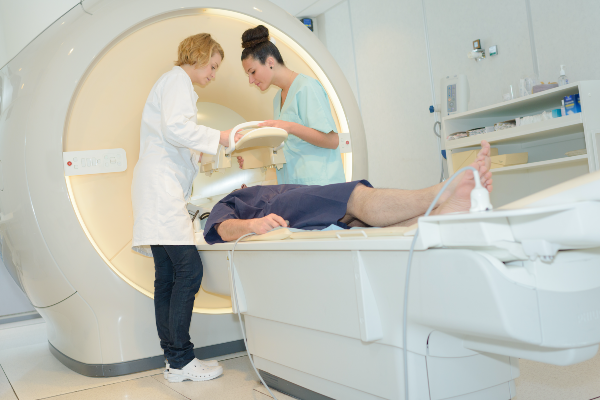A landmark new study has pointed towards the harm caused by the MRI contrast agent gadolinium inflicted on pregnant women in their first trimester.
Women who don't even realise they are pregnant when they undergo magnetic resonance imaging can be exposed to the chemical, which might not be safe for the foetus, according to a new report.
Gadolinium is a dye which is used in roughly 30 percent to 45 percent of MRI scans in the US alone to help enhance differences in internal organs, soft tissues, bones and blood vessels.
Lead study author, Steven Bird, of the Food and Drug Administration’s Centre for Drug Evaluation and Research in Maryland commented that;
“It is known that gadolinium contrast crosses the placenta and enters fetal circulation."
The safety of gadolinium-based contrast agents (GBCAs) in pregnant women “has not been established, and their use during pregnancy is not recommended unless essential to the health of the woman or fetus,” Bird told Reuters Health.
“Available data from cohort studies and case reports have revealed inconsistent findings regarding the association between GBCAs and adverse fetal outcomes.”
Bird and his researchers analysed data from nearly 4.7 million pregnancies in that resulted in live births between 2006 and 2017, searching for the prevalence of MRI procedures with and without GBCAs among pregnant women.
The research team found 6,879 exposures to GBCAs in 5,457 pregnancies, representing one GBCA exam per 860 pregnancies, or about 0.1 percent of all pregnancies.
22 percent of scans were for the pelvic and abdominal regions, which might be more likely to affect the foetus.
About 70 percent of exposures in pregnant women occurred during the first trimester, the study authors wrote in the journal Radiology.
Most pregnancies with in-utero exposure to the dye occurred in the first few weeks, “when a woman may not yet be aware of her pregnancy," according to Steven Bird.
"This raises the importance for patients and healthcare providers to evaluate the possibility of pregnancy before administration of GBCA.
“Increased attention to pregnancy screening measures may help reduce inadvertent exposure to gadolinium,” Bird said. “Healthcare providers should use GBCAs only when the additional diagnostic information provided by contrast is necessary.”
The American College of Radiology recommends screening women of reproductive age for pregnancy before any scans take place.










